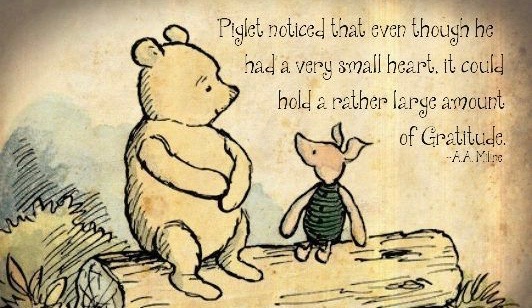
24 Jul Gratitude
In his book, No Man Is an Island, the monk and spiritual writer Thomas Merton says: “If we are not grateful to God, we cannot taste the joy of finding him in creation…unless we are grateful for our own existence, we do not know who we are, and have not discovered what it really means to be and to live.”
The Roman senator and orator Cicero described gratitude as “not only the greatest of virtues, but the parent of all others.” All the great leaders and spiritual writers have emphasized the need for gratitude. St Paul counsels us, that “whatever you do, in word or deed, do everything in the name of the Lord Jesus, giving thanks to God the Father through him.” (Colossians 3:17) The capuchin monk Selanus Casey even recommends thanking God ahead of time, by saying “thank you” to God before each day begins.
When the Christian expresses gratitude, he or she is acknowledging the benevolent influence of God, and trusting in God’s providence. To say “thank you” to God means to turn away from ourselves and towards God. This practice helps to cultivate an attitude of awareness of the loving and ineffable presence of God, not only in your life but in the life of the world around you.
Gratitude is the theme of our Sunday worship, especially when we celebrate the Holy Eucharist – itself a word which means “thanksgiving”. In the Eucharist we are doing more than hearing God’s word and praying together; we are receiving the sacrament of the body and blood of Christ. This is a gift from God – and a command of Jesus to so do – which is a small taste of heaven. The Eucharist unites us to Christ as one body and is one of the ways God literally feeds the faithful.
A church may experience joy, but without gratitude the joy is fleeting. Churches often fail or struggle to recruit or hold on to new members because gratitude is absent. A church without gratitude soon develops a corrosive culture of complaining, when you see everything that’s wrong and nothing that’s right. It’s an old story. In the book of Exodus, “the whole congregation of the Israelites complained against Moses and Aaron in the wilderness.” (16:2) People were going hungry and had become afraid they would die in the place where God had led them. God, however, continued to care for his people and fed them with quails and manna from heaven.
Perhaps the most difficult challenge for Christians is to be thankful in the face of loss, disappointment, or failure. Can we give thanks for all of those things? It would be understandable for someone to turn away from God at such times, or believe that somehow God does not really care. It is a test of our faith. What may make a difference is how well we are supported by our fellow Christians – our brothers and sisters in Christ who come to our side in times of suffering and loss.
If there is a blessing in adversity, it is that in thanksgiving we draw closer to one another and to God. In times of defeat or turmoil God is still loving us, blessing us, and binding up our wounds. In the prayer of General Thanksgiving it says, “we thank you also for those disappointments and failures that lead us to acknowledge our dependence on you alone.” I would change the prayer to read “…our dependence on you and on the loving faithful.”
We learn gratitude by practicing it, in our daily prayers and in all aspects of our common life. The supreme example of gratitude remains the Eucharist, and a beautiful description of it comes from the 18th century cleric Samuel Johnson, known as the “Father of the Episcopal Church in Connecticut”, who wrote:
“…the Holy Sacrament is the most divine and heavenly Institution of our religion, and the most solemn act of our worship, the design of which is, to inspire our souls with a most grateful sense of the mighty love of our blessed lord and master in dying for us, in order to destroy both the power and guilt of sin; and to seal a pardon to us upon our true repentance, and fill us with the most ardent devotion to God and our Lord Jesus, and the most affectionate charity one towards another…”
When we receive Holy Communion, we are taught to reply to the words “The Body of Christ” with an “Amen”. However, occasionally a communicant comes forward and replies, quite naturally, “thank you”. Gratitude is our natural response to the gifts of God, and a soul which practices gratitude develops a lightness that allows them to ascend more easily in prayer to the God of love and kindness.
With a thankful heart
Father David




No Comments